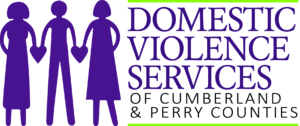April was Sexual Assault Awareness Month (SAAM). Sexual assault if defined as any sexual, physical, verbal or visual act that forces a person to engage in sexual contact against their will or without their affirmative consent. Similar to domestic violence, sexual assault can affect anyone, directly or indirectly, regardless of age, sexual orientation, gender, religion, education or socioeconomic background.
Often motivated by a need to control, humiliate and harm, it’s not surprising that an estimated 60% of sexual assault survivors know the person who assaulted them. As the recent #MeToo and #TimesUp movements have brought to light, power and control are often used to keep victims from coming forward. Fearing they won’t be believed or, even worse, blamed for the assault, combined with the trauma of the experience, often prevents many from seeking help. In fact, 2 out of 3 sexual assaults go unreported to police. These traumatic situations also lead to other psychological, emotional, or physical effects for survivors, such as depression, substance abuse, eating disorders, sleep disorders or even suicide. $127 billion is the amount of money rape costs the U.S., annually. Not just the assault itself, but also helping survivors cope with the long-term effects.
So, what can we as a community do to prevent this from happening? Use your voice! Talk about sexual assault and domestic violence. Pose questions and start discussions on harassment, consent, autonomy, equality and abuse. The more we talk, the more we believe and support survivors, the more people will come forward to share their stories. If you see something happening, step in and help. Listen to and support someone you know, or suspect, has been abused. Younger generations are watching and learning from what we say and do. It’s our time to show them how to step up and do the right thing. The day survivors feel comfortable coming forward and perpetrators are held accountable for their actions, could be the day we rid our community of sexual assault and domestic violence for good. If we all work together to keep the conversation going, we can create positive change in our community.

